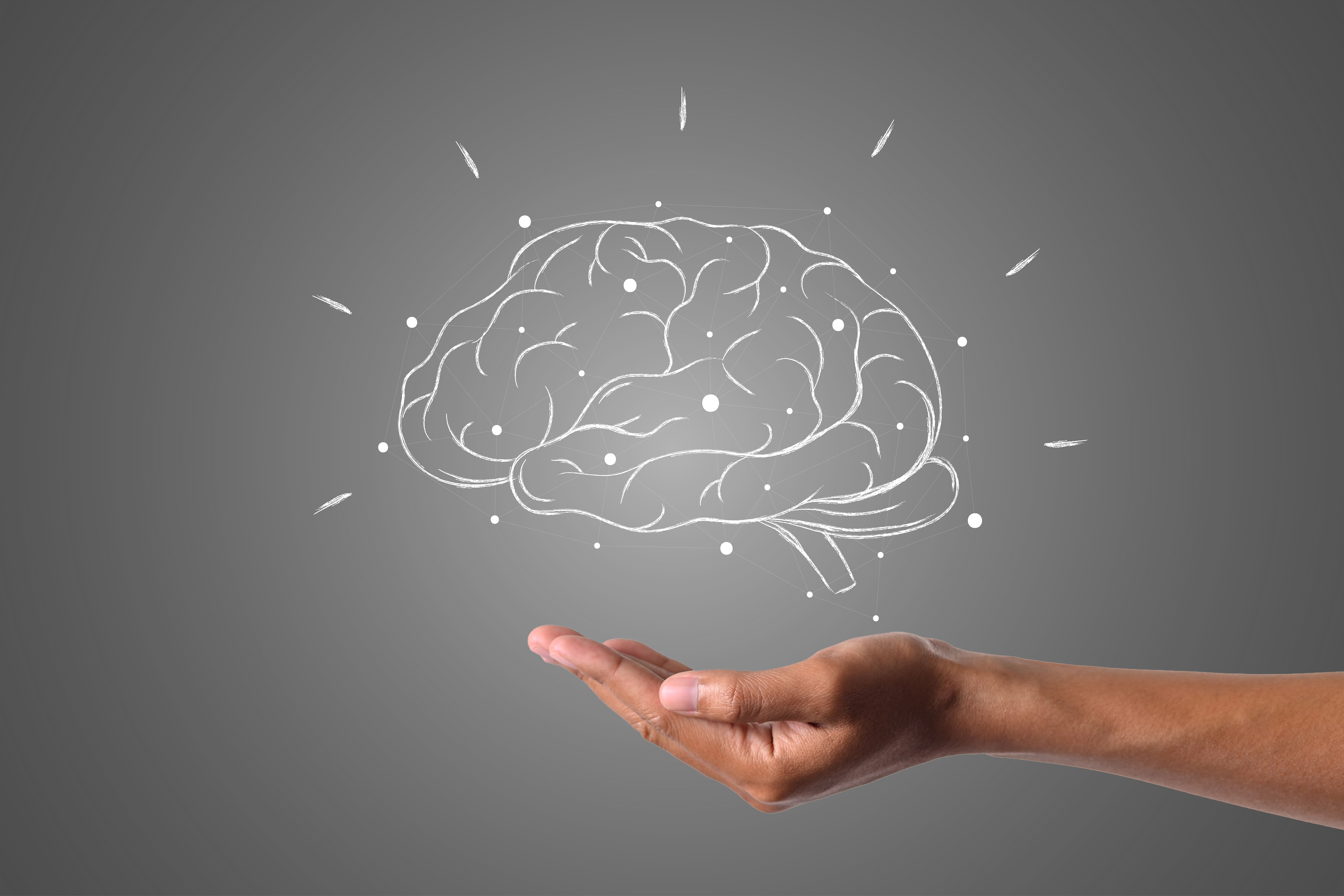The Seven Pillars Of Holistic Health

Pillar 1: Nutrition
Fueling our bodies with the right nutrients is essential for our
overall well-being. Every meal provides our bodies with the energy
needed to perform daily tasks and the building blocks necessary for
cellular growth and repair. These nutrients include proteins, fats,
carbohydrates, vitamins, and minerals—all vital components that keep
us functioning. When we eat a healthy, balanced diet, we supply our
bodies with the appropriate amount of energy and the highest quality
materials to keep our systems running smoothly. This allows our
bodies to perform at their best, ensuring that we remain physically
resilient and mentally sharp. A strong, well-nourished body is a
fundamental requirement for both mental health and intellectual
performance. When we prioritize balanced nutrition, we not only
support our physical health but also lay the foundation for mental
well-being and cognitive efficiency, helping us to thrive in all
areas of life.
Opt for a diet that emphasizes fresh,
whole foods to keep your body and mind in top shape. Focus on
incorporating a variety of colorful fruits and vegetables, whole
grains, and lean proteins into your meals. These foods provide
essential vitamins and minerals that support your energy levels and
overall health. Reducing your intake of processed foods, refined
sugars, and unhealthy fats can help stabilize your mood and improve
your digestive health, making you feel lighter and more focused
throughout the day.
Pillar 2: Physical Activity
The human body is inherently designed for movement, and the benefits
of physical activity are well-documented through extensive research.
Engaging in regular physical activity is essential for everyone,
regardless of age, though it's important to tailor it to individual
capabilities and health conditions. Movement should be integrated
into daily life, as the advantages of staying active far outweigh
any risks associated with it. Regular exercise boosts the immune
system, enhances endurance, and plays a crucial role in preventing
or delaying the onset of various health issues such as obesity,
diabetes, cardiovascular and respiratory diseases, osteoporosis, and
even certain types of cancer. It also improves motor skills,
enhances sleep quality, and supports brain function while promoting
proper posture and preventing or slowing the progression of postural
defects.
Beyond the physical benefits, exercise has profound effects on
mental health. Through hormonal regulation, physical activity can
significantly reduce stress levels and alleviate psychological
strain. It also fosters better mental well-being, encourages
positive self-discipline, and enhances social connections. The
benefits of staying active extend far beyond just feeling good; they
provide a powerful source of positive energy that fuels both the
body and mind. Regular movement, therefore, is not just about
maintaining physical health but also about nurturing a holistic
sense of well-being.
Pillar 3: Sleep
Sleep plays a crucial role in human life, significantly impacting
overall health, development, and appearance. A good night's sleep
promotes the regeneration of the entire body, ensures both mental
and physical balance, and has a particularly beneficial effect on
the central nervous system. Sleep regulates hormone production,
energy conservation, memory consolidation, and neuron function. A
well-functioning mind is essential for the proper operation of all
body systems. Research shows that during deep sleep, the body
intensifies the secretion of growth hormone, which is responsible
for muscle mass gain, bone growth stimulation, and the regeneration
of damaged tissues. If the deep sleep phase is shortened, growth
hormone is produced in smaller quantities, impairing full
regeneration and growth. For adults, sleep typically lasts between 7
to 9 hours.
Experts, such as those from the American Academy of Sleep Medicine,
recommend maintaining regular sleep patterns by going to bed and
waking up at the same time every day, including weekends and
holidays. If you can't fall asleep within 20-30 minutes, it’s better
to get up, engage in a calming activity like reading, and return to
bed when you feel sleepy.
Creating the right sleep environment is also crucial—ensure your
bedroom is dark, quiet, and cool, with a comfortable mattress and
natural bedding. Avoid using electronic devices or watching TV at
least 30 minutes before bed, and never in the bedroom.
Additionally, steer clear of heavy meals, coffee, strong tea, and
alcohol close to bedtime; a light snack might help if hunger wakes
you during the night. Finally, regular physical activity during the
day can promote better sleep, though it’s important not to exercise
too late in the evening or right before bed. By following these
practices, you can improve the quality of your sleep, which is
essential for overall health and well-being.
Pillar 4: Staying Hydrated
Water makes up approximately 60-65% of an adult human's body weight,
and it plays a vital role in maintaining health and well-being. It
is present both inside cells (intracellular fluid) and outside them
(extracellular fluid), where it serves essential transport functions
and creates the environment needed for biochemical reactions. Proper
hydration is crucial for the body’s metabolic and physiological
processes. Without sufficient water intake, the body cannot function
effectively.
Water is a fundamental component of our body, responsible for a wide
range of vital functions, including temperature regulation, nutrient
transport, and waste elimination. The body's water needs can vary
based on factors like age, gender, physical activity levels,
climate, and overall health. For example, those who are more
physically active or live in hot climates may require more water to
stay properly hydrated.
General guidelines suggest that an adult should consume about 0.02
liters of water per kilogram of body weight. Other recommendations
indicate that a healthy adult should drink between 1.5 to 2 liters
of water each day. However, these are just rough estimates, and
individual needs may vary. It’s important to listen to your body and
adjust your water intake based on your personal circumstances.
Staying well-hydrated helps maintain the balance of
bodily fluids, supports cognitive function, and keeps the skin
healthy. Inadequate water intake can lead to dehydration, which may
cause symptoms like headaches, fatigue, and impaired physical
performance. By following recommended guidelines and adjusting your
water intake to meet your specific needs, you can support your
body’s health and overall well-being.
Pillar 5: Sunlight
Sunlight plays a crucial role in sustaining life on Earth,
influencing everything from plant growth to animal health and human
well-being. Much like the nutrients found in food and the essential
hydration provided by water, sunlight is vital for maintaining our
overall health. Without sufficient exposure to sunlight, our bodies
can experience a range of negative effects. A lack of sunlight can
lead to increased production of melatonin, the hormone responsible
for regulating sleep, and cortisol, the hormone associated with
stress. This imbalance often results in feelings of lethargy,
irritability, difficulty concentrating, and even seasonal
depression, which can be challenging to overcome.
One of
the most significant benefits of sunlight is its role in the
production of vitamin D. This essential vitamin is crucial for
strengthening our immune system, enhancing bone health, and reducing
cholesterol levels. Sunlight exposure also stimulates the production
of serotonin, a neurotransmitter that contributes to feelings of
happiness and well-being. Additionally, exposure to sunlight
increases the number of lymphocytes, white blood cells, and
antibodies in our bodies, all of which help protect us from
infections and bolster our immune response.
Furthermore, sunlight aids in the transport of oxygen to our
bloodstream, enabling red blood cells to function more effectively.
This improved oxygenation not only boosts our energy levels but also
enhances our overall mood and vitality. Given these numerous
benefits, it’s clear that sunlight is not just a source of light and
warmth but also a critical factor in maintaining both our physical
and mental health. Regular exposure to natural sunlight is essential
for keeping our bodies and minds functioning optimally.
Pillar 6: Self-Control
Self-control, often viewed as the ability to regulate our thoughts,
emotions, and behaviors, plays a pivotal role in leading a healthy
and balanced life. It is a trait that not only influences our
decision-making process but also has profound effects on both our
physical and mental well-being. By exercising self-control, we can
maintain moderation in enjoyable activities and avoid harmful
behaviors, ultimately fostering a healthier lifestyle.
The Benefits of Self-Control for Physical Health
One of the most direct impacts of self-control is on our physical health. This ability enables us to make healthier choices regarding our diet, exercise, and overall lifestyle habits. For instance, practicing self-control helps us resist the temptation of unhealthy foods, allowing us to choose nutritious meals instead. This moderation in eating habits not only supports weight management but also reduces the risk of chronic diseases such as obesity, diabetes, and heart conditions.
The Impact of Self-Control on Mental Health
Self-control is equally beneficial for our mental and emotional well-being. It helps us manage stress, anxiety, and other negative emotions by promoting healthier coping mechanisms. Instead of reacting impulsively or turning to unhealthy habits like overeating, smoking, or excessive drinking, self-control enables us to choose more constructive ways to deal with stress, such as deep breathing exercises or engaging in a favorite hobby.
The Role of Self-Control in Moderation
Moderation is a key component of a healthy lifestyle, and self-control is the driving force behind it. Whether it’s enjoying a favorite treat, spending time on social media, or engaging in other pleasurable activities, self-control ensures that we do so in a way that doesn’t harm our well-being. It helps us set boundaries and avoid overindulgence, which can lead to negative consequences like poor health, addiction, or a decline in productivity.
Self-control is a powerful tool that significantly enhances both our physical and mental health. By practicing self-control, we can make better choices, avoid harmful behaviors, and maintain a balanced lifestyle. This ability not only helps us achieve our health goals but also contributes to a more fulfilling and resilient life. In a world full of temptations and distractions, cultivating self-control is essential for leading a healthier, happier, and more balanced life.
Pillar 7: Healthy relationships
Building and maintaining strong, healthy relationships is a
fundamental aspect of overall well-being that we often overlook.
Whether in our personal lives or professional settings, our
interactions with others play a crucial role in shaping the quality
of our lives. Being in a relationship with another person fulfills
one of our most basic human needs. Good, supportive relationships
not only enhance the quality of our lives, making them more
fulfilling and joyful, but they also positively impact our physical
and mental health.
Here are some practical tips to help you build and nurture healthy,
warm, and satisfying relationships:
Show Genuine Interest: Take the time to show that you care about the other person. Give them your full attention, recognize their value, and make them feel important.
Limit Negativity: Try to minimize or eliminate complaining and criticizing. Instead, focus on fostering a positive atmosphere.
Seek Harmony: Remember that you don’t always need to be right. Sometimes, it’s more important to maintain harmony than to win an argument.
Communicate Openly and Honestly: Clear, honest communication is the foundation of any strong relationship. Be open about your thoughts and feelings.
Improve Your Listening Skills: Effective listening is just as important as speaking. By truly hearing what others have to say, you show respect and empathy, which strengthens your bond.
By focusing on these practices, you can foster healthier, more fulfilling relationships that enhance both your life and the lives of those around you. Healthy relationships are not only about the emotional connection but also contribute to overall physical and mental well-being, making them an essential part of a happy and balanced life.




